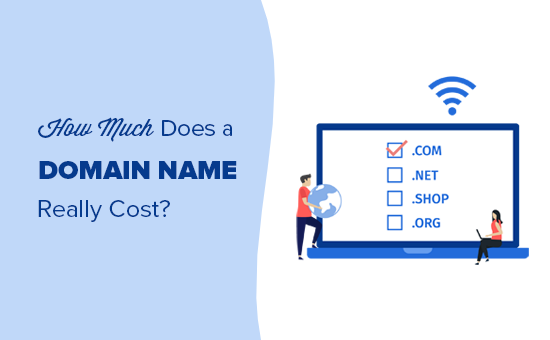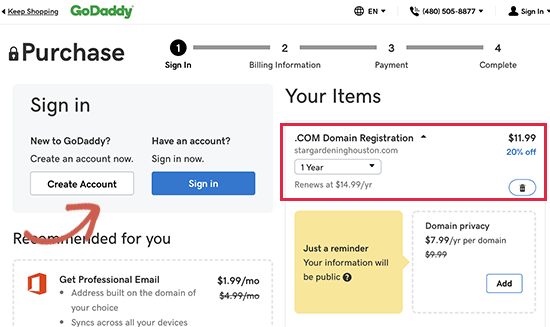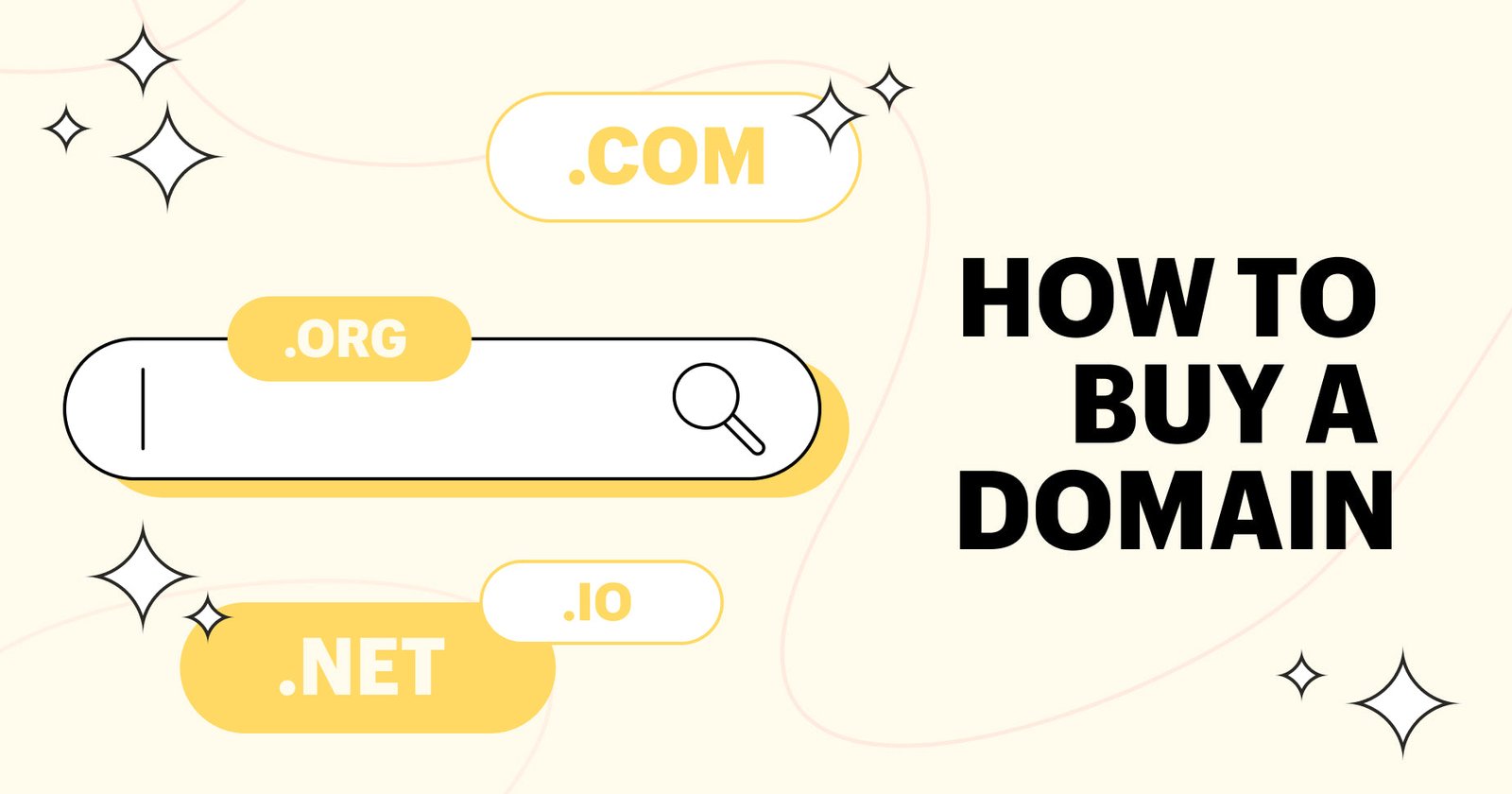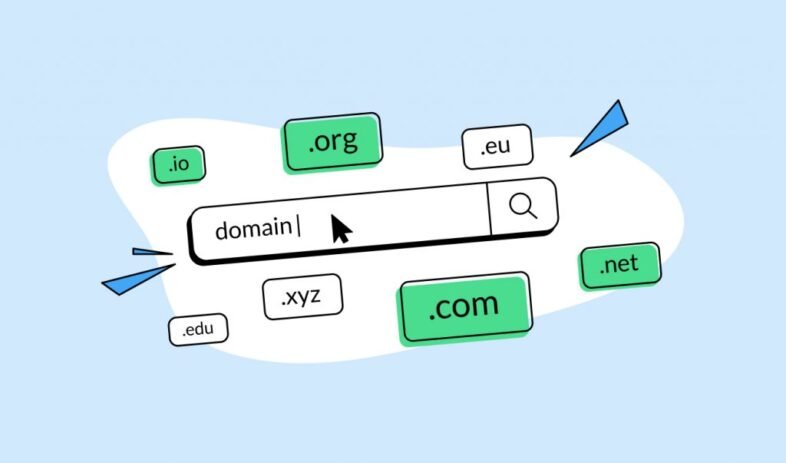How much does it cost to buy domain names? Well, at Timely Domains, we are a renowned domain name investment company that specializes in acquiring, selling, and managing premium domain names. Our team of domain experts is dedicated to identifying and securing brandable, exact match, and expired domain names that hold immense value for businesses, entrepreneurs, and individuals seeking a strong online presence.
When it comes to our domain acquisition strategy, we focus on acquiring memorable and distinctive brandable domains that resonate with target audiences. In addition, we actively seek out exact match domains to boost organic search visibility and credibility for businesses. We also identify high-quality expired domains that come with existing backlinks, domain authority, and potential traffic, providing valuable SEO advantages.
On the selling side, we meticulously list each domain in our portfolio, showcasing their unique value and benefits for buyers. We believe in fair and transparent pricing, offering competitive rates for our premium domain names while ensuring the best value for our customers. Moreover, our experienced team of domain specialists provides personalized support throughout the domain acquisition or sale process, offering expert advice and guidance.
When you choose Timely Domains, you gain access to a vast selection of premium domain names that cater to various industries and businesses. Our team’s unparalleled domain expertise, secure transaction process, and stellar industry reputation make us a trusted and reliable partner in the domain investment industry. We are passionate about empowering clients with invaluable digital assets that help them achieve their online objectives effectively. Whether you’re a startup, an established business, or an individual looking to invest in premium domains, Timely Domains is here to assist you in acquiring and selling exceptional domain names that stand the test of time. So, if you’re wondering how much to buy domain names, reach out to us and let us help you navigate the exciting world of domain investments.

Factors Affecting Domain Name Pricing
Length
The length of a domain name can have an impact on its pricing. Generally, shorter domain names are more desirable and therefore tend to be priced higher. This is because shorter domain names are easier to remember, type, and share, making them more valuable to businesses and individuals.
Top-Level Domain (TLD)
The choice of top-level domain (TLD) also affects the pricing of domain names. Common TLDs like .com, .net, and .org are typically more expensive due to their widespread recognition and popularity. On the other hand, less common or country-specific TLDs may have lower pricing. It’s important to consider the target audience and industry when choosing a TLD.
Keywords
Domain names that contain relevant keywords related to a specific industry or topic tend to be priced higher. This is because domain names with keywords can have a positive impact on search engine optimization (SEO) and organic search visibility. Businesses and individuals may be willing to pay a premium for a domain name that includes essential keywords.
Brandability
The brandability of a domain name is a crucial factor in determining its price. Domain names that are catchy, memorable, and unique have a higher perceived value. These types of domain names can help businesses stand out from the competition and establish a strong online presence. As a result, brandable domain names often command higher prices in the market.
Market Demand
The level of demand for a particular domain name plays a significant role in pricing. If multiple parties are interested in acquiring the same domain name, a bidding war may ensue, driving up the price. Similarly, domain names that are in high demand due to industry trends or emerging markets may also have higher price tags.
Traffic Potential
Domain names that already receive consistent traffic can be more expensive. This is because they have built-in value in terms of the potential audience and marketing opportunities they offer. If a domain name has a history of generating significant traffic or has valuable backlinks, it can attract higher prices from buyers.
Domain Age
The age of a domain can impact its price. Older domains are often seen as more trustworthy and established, which can be advantageous for businesses looking to build credibility. However, it’s important to note that the age of a domain should be balanced with other factors, such as relevancy and keyword usage, to determine its true value.
Historical Sales Data
The sales history of similar domain names can influence the pricing of a domain. If comparable domain names have previously sold for high prices, it can set a benchmark for similar domains in the market. Buyers and sellers often refer to historical sales data to gauge the value and potential return on investment for a domain name.
Seller’s Reputation
The reputation and credibility of the seller can impact the perceived value of a domain name. Well-known and reputable sellers are more likely to command higher prices due to the trust they have built with buyers over time. On the other hand, new or unknown sellers may need to price their domains competitively to attract buyers.
Industry Trends
The current trends and developments within specific industries can influence domain name pricing. For example, if a new technology or niche market is emerging, domain names related to that industry may be in high demand and therefore priced higher. It’s important to stay updated on industry trends to understand the market dynamics and make informed purchasing decisions.
Where to Buy Domain Names
Domain Registrars
Domain registrars are companies that provide registration services for domain names. They usually offer a wide range of TLDs and allow individuals and businesses to secure their desired domain name. Popular domain registrars include GoDaddy, Namecheap, and Google Domains.
Domain Auctions
Domain auctions are platforms where individuals and businesses can bid on domain names. These auctions can be competitive, especially for highly sought-after domain names. Popular domain auction platforms include Sedo, GoDaddy Auctions, and NameJet.
Private Sellers
Private sellers are individuals or businesses who own domain names and are looking to sell them directly to buyers. Private sales can range from casual negotiations to formalized agreements. Platforms like Flippa and Afternic allow private sellers to list their domain names for interested buyers.
Marketplaces
Online marketplaces specialize in connecting buyers and sellers of domain names. These marketplaces often have a wide selection of domain names available for purchase, ranging in price and category. Some popular domain marketplaces include Sedo, Afternic, and BrandBucket.
Pricing Strategies for Buying Domain Names
Fixed Price
Fixed price listings offer a set price for a domain name, and buyers can purchase the domain at that price without any negotiations. This pricing strategy is commonly used for lower-priced domains or when the seller wants a straightforward and quick sale.
Negotiation
Negotiation is a common pricing strategy in which buyers and sellers engage in discussions to agree on a mutually acceptable price. This strategy allows both parties to explore different options and reach a price that satisfies both the buyer and the seller. Negotiation can be time-consuming but can lead to favorable outcomes for both parties.
Bidding
Bidding involves multiple buyers competing for a domain name by submitting increasingly higher offers. Bidding can be done in auctions or through private negotiations. The highest bidder at the end of the bidding period or negotiation process wins the domain name. Bidding can be a good strategy to secure highly desired domain names but can also be competitive and drive up prices.
Flipping
Flipping involves buying a domain name at a relatively low price and then selling it at a higher price. This strategy requires careful market analysis and the ability to identify undervalued domain names. Flipping can be a profitable strategy for experienced domain investors who have knowledge of current market trends and pricing dynamics.
Additional Costs to Consider
Domain Renewal Fees
Domain renewal fees are recurring costs that need to be considered when budgeting for domain name acquisition. Most domain registrars charge an annual fee to maintain ownership of a domain name. It’s important to factor in these fees to ensure the long-term affordability of a domain name.
Privacy Protection
Privacy protection is an additional service offered by domain registrars to protect the personal information of domain owners. This service typically incurs an extra cost. Privacy protection can be beneficial for those who want to keep their contact details private and avoid potential spam or unsolicited communication.
Premium TLDs
Premium TLDs are domain extensions that are considered more prestigious or valuable. These TLDs often come with a higher price tag compared to the standard TLDs. Premium TLDs can vary depending on the specific extension and its perceived value in the market.
Trademark Protection
If a domain name is closely related to a trademarked term or brand, it may be necessary to invest in trademark protection to avoid legal issues. Trademark protection can involve registering a trademark, which can incur additional costs. It’s essential to consider the potential trademark implications and associated costs when acquiring domain names.

Domain Name Valuation Methods
Comparable Sales
One common method of valuing a domain name is by looking at comparable sales. By analyzing historical sales data of similar domain names, domain investors can gain insights into the potential value of a domain. Factors such as the length, keywords, TLD, and industry relevance of comparable sales can help determine a domain’s market value.
Appraisal Services
Appraisal services offer professional assessments of a domain name’s value. These services consider factors such as keyword relevance, market demand, TLD, and overall market trends. While appraisal services can provide valuable insights, it’s important to approach them with caution as domain valuations can be subjective.
Intrinsic Value
The intrinsic value of a domain name refers to its value based on its inherent qualities and characteristics. Factors such as keyword relevance, brandability, industry demand, and potential traffic can contribute to a domain’s intrinsic value. Determining the intrinsic value of a domain requires a comprehensive analysis of its potential advantages and benefits.
Potential Earnings
The potential earnings that can be generated from a domain name can also impact its value. This includes potential revenue from advertising, affiliate marketing, or e-commerce activities associated with the domain. Estimating the potential earnings of a domain involves analyzing factors such as keyword search volume, industry competition, and monetization strategies.
Brand Value
The brand value of a domain name refers to its ability to enhance brand recognition and credibility. A domain name that aligns well with a business’s brand identity and values can have a significant impact on its overall brand value. Considerations such as memorability, distinctiveness, and relevance to the target audience contribute to a domain’s brand value.
Budgeting for Domain Name Acquisition
Determining Your Budget
When it comes to budgeting for domain name acquisition, it’s essential to assess your financial resources and set a realistic budget. Consider factors such as your business’s size, industry, and long-term goals to determine how much you can allocate towards acquiring domain names.
Setting Priorities
Setting priorities is crucial to ensure that your budget aligns with your business goals and objectives. Determine which domain names are most important for your online presence and allocate a larger portion of your budget towards acquiring those key domain names. This helps to optimize your budget allocation and maximize the value of your investments.
Allocating Funds
Once you have determined your overall budget and priorities, allocate funds accordingly. Consider the potential costs associated with purchasing domain names, as well as the additional costs mentioned earlier, such as renewal fees and trademark protection. Allocating funds strategically ensures that you are prepared to acquire the domain names that are most valuable to your business.
Evaluating ROI
After acquiring domain names, it’s important to evaluate the return on investment (ROI) to assess the effectiveness of your budget allocation. Monitor factors such as website traffic, lead generation, brand recognition, and revenue generated from the acquired domain names. This evaluation allows you to make informed decisions about future domain investments and adjust your budget accordingly.

Tips for Negotiating Domain Prices
Do Proper Research
Before entering into negotiations, research the market value of the domain name you are interested in. Look at comparable sales, industry trends, and any other relevant factors that could impact the domain’s price. Armed with this information, you can negotiate with confidence and make an informed offer.
Understand Seller’s Motivation
Understanding the seller’s motivation can give you an advantage in negotiations. If the seller is looking for a quick sale or has had the domain listed for a long time, they may be more willing to negotiate on price. Conversely, if the seller believes the domain has high value or is in high demand, they may be less likely to negotiate.
Be Prepared to Walk Away
It’s important to set a maximum budget for a domain name and be prepared to walk away if the negotiations exceed that limit. Sometimes, walking away can encourage the seller to reconsider their price or open the door for other opportunities. Sticking to your budget ensures that you don’t overpay for a domain name.
Consider Trade-offs
In negotiations, consider trade-offs that can benefit both parties. For example, you can offer to pay a higher price if the seller includes additional services or assets related to the domain, such as website content or social media accounts. Finding mutually beneficial trade-offs can lead to a successful negotiation.
Avoiding Overpaying for a Domain
Set a Budget Limit
Setting a budget limit before entering into negotiations or purchasing a domain is crucial to avoid overpaying. Determine the maximum amount you are willing to spend and stick to that limit. This ensures that you make financially sound decisions and avoid being swayed by emotional attachments or bidding wars.
Don’t Get Emotionally Attached
It’s important to approach domain acquisitions with a clear and rational mindset. Getting emotionally attached to a specific domain name can cloud judgment and lead to overspending. Stay focused on your business goals and the value the domain name can provide rather than becoming fixated on owning a particular name.
Compare Prices
Before making a purchase, compare prices across different platforms and sellers. Similar domain names can vary significantly in price, so it’s important to explore all available options. This allows you to find the best deal and ensure that you are not overpaying for a domain.
Consider Alternative Options
If the price of a desired domain name is beyond your budget, consider alternative options. Look for similar domain names that may be available at a lower price or explore different TLDs. Being flexible and open to alternatives can help you acquire a domain that meets your needs without overpaying.

How to Protect Your Domain Investment
Regularly Renew Your Domains
To protect your domain investment, make sure to renew your domain names on time. Failure to renew a domain can result in it becoming available for others to register, potentially leading to loss of your investment. Set up automatic renewals or set reminders to ensure you don’t miss important renewal deadlines.
Enable Privacy Protection
Enabling privacy protection for your domain names can help protect your personal information from being publicly available in the WHOIS database. This reduces the risk of unsolicited communication and potential scams. Most domain registrars offer privacy protection as an add-on service for an additional fee.
Monitor Trademark Infringement
Regularly monitor your domain names to ensure they are not infringing on any trademarks. Trademark holders can file complaints or take legal action against domain owners if they believe their intellectual property rights are being violated. Avoid using domain names that could potentially lead to legal issues and monitor for any potential trademark conflicts.
Secure Your Domain Assets
Take measures to secure your domain assets by using strong passwords and enabling two-factor authentication. This helps protect against unauthorized access and potential domain hijacking attempts. Regularly update your login credentials and keep your domain registrar account secure to safeguard your domain investments.
Conclusion
When it comes to buying domain names, there are various factors that can affect pricing. Factors such as length, TLD, keywords, brandability, market demand, traffic potential, domain age, historical sales data, seller’s reputation, and industry trends all contribute to the value of a domain name.
Choosing the right place to buy domain names, understanding different pricing strategies, considering additional costs, and using domain valuation methods are essential in making informed purchasing decisions. It’s also important to budget carefully, negotiate effectively, avoid overpaying, and protect your domain investments to ensure long-term success.
By understanding the factors that affect domain pricing and following best practices for buying and protecting domain names, you can acquire valuable assets that contribute to your online presence and support your business objectives effectively.





